Ok, this is my first Medium post and it covers a lot of ground so I’ll try to keep it as brief as I can. Constructive feedbacks are appreciated and be my guest to continue the conversation in the comments.
I couldn’t find "Hackathon Winning " on paperswithcode.com so I believe it’s safe to assume that we’re still quite far from dealing with a modeled problem. Everything from this point on is solely based on my past experiences and worldview, don’t be shy to share yours.
Keep in mind this is all coming from an engineering perspective (well, mine) but the following tips are applicable to any sort of role you take up in your team. Hope you like it, nice reading 🤓
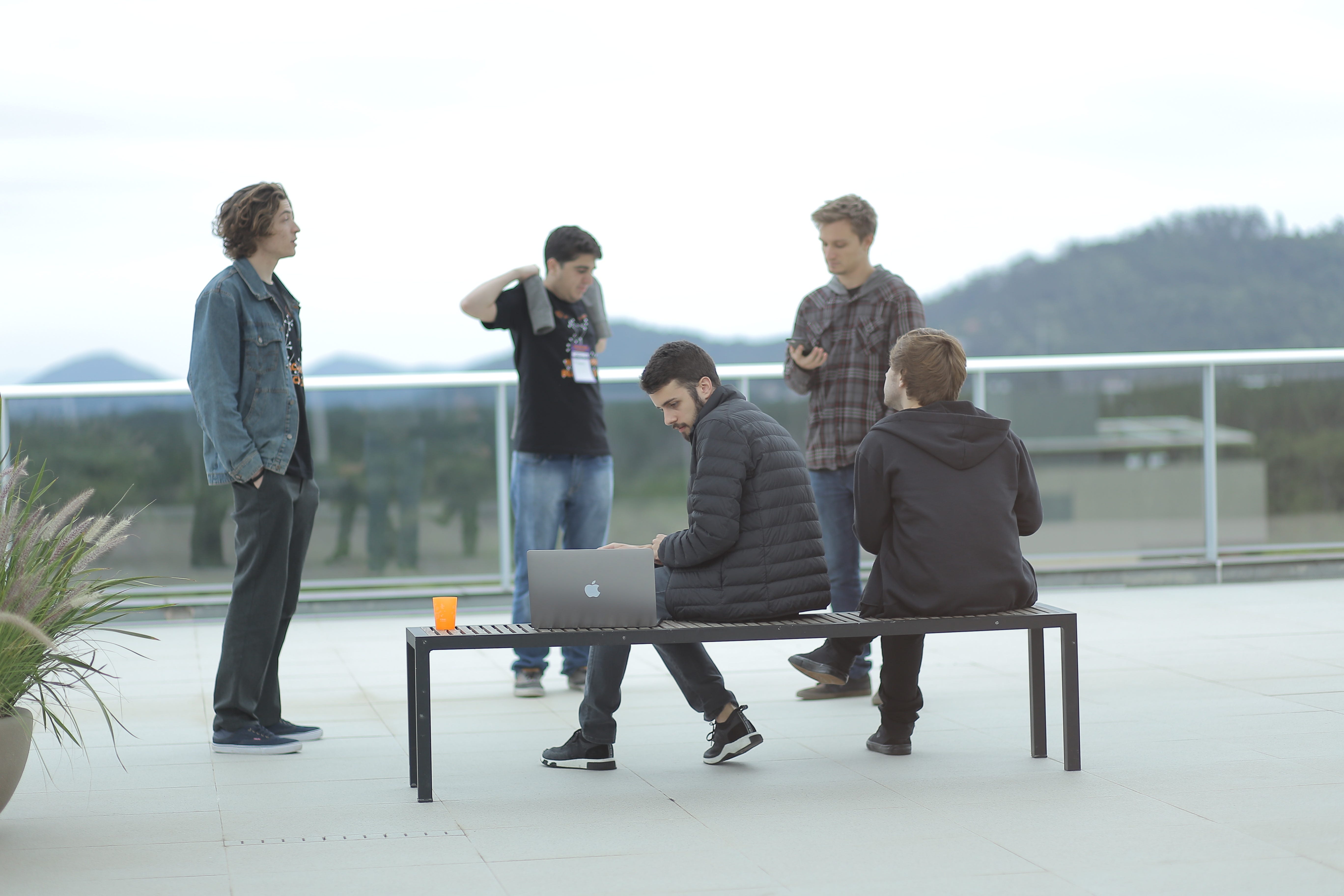
Pre-pitch moments of a pre-covid hackathon
My experience
I’m no specialist hackathon winner of any sort, but last week the whole “competitive-project-weekends_-_thing” a couple of friends introduced me last year took uncharted proportions.
With the COVID-19 pandemic, local events that would, as previously usual, stay hidden away inside Ivy Leagues, tech giants and governmental facilities suddenly had to deal with an all-remote model in the most brutal way possible. I bet this forced many organizers to move over to platforms such as Devpost and pull some uncalled-for all-nighters but, look at the bright side: they now count with a reach many orders of magnitude higher.
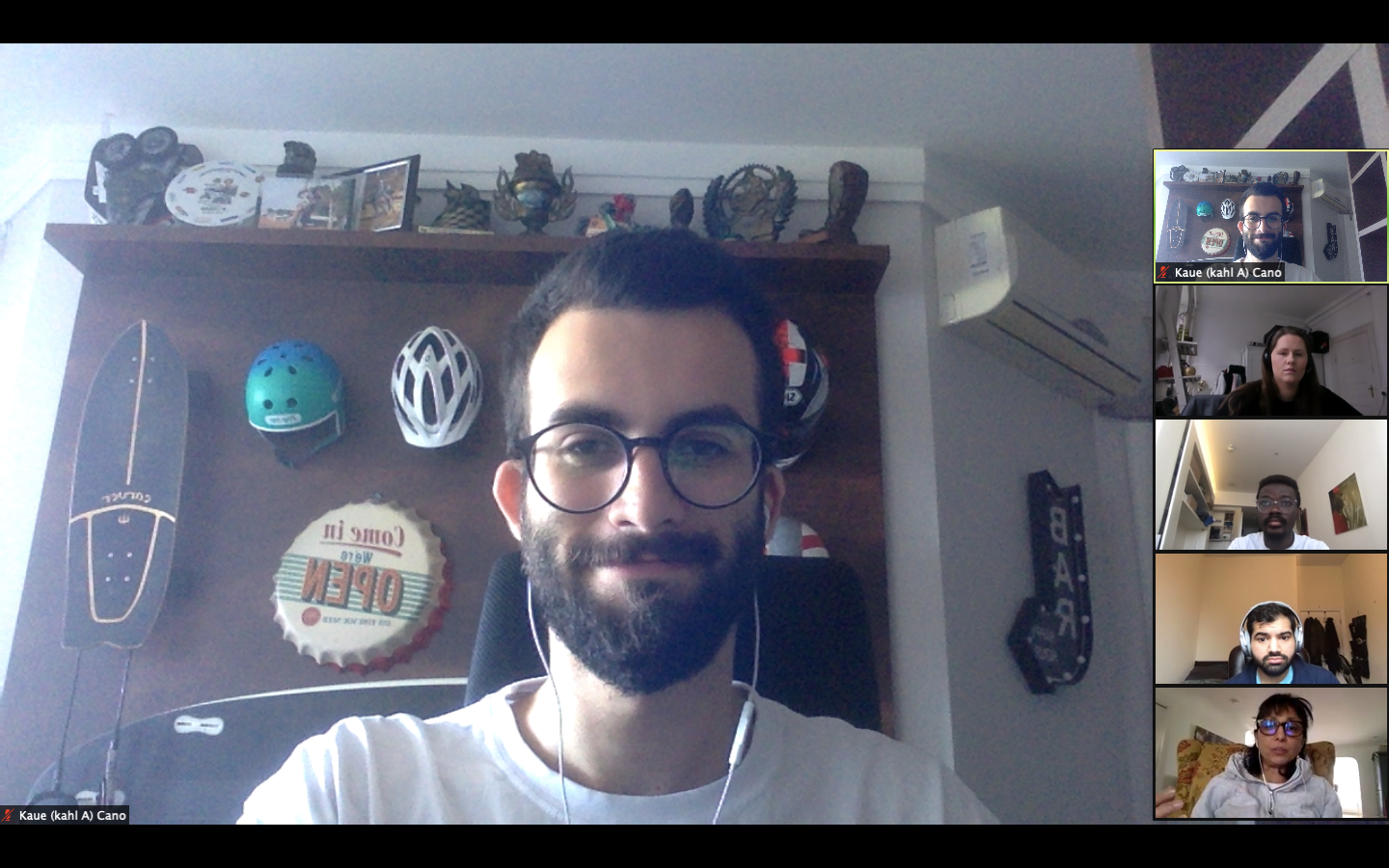
Basically every moment of a remote hackathon
Such decentralization is game-changing for participants as well. Hackers can now not only pull Monster-fuelled marathons from the comfort of their home, but also run for** larger prize pools judged by names they could only dream of meeting in person.**
On May 2020, the cross-continent project ImmunoLynkI helped bring to life won the Lumiata COVID-19 Global AI Hackathon, judged by none other than Edward Frenkelm, Vinod Khosla and Aneesh Chopra, among others. Yes, the tech mind behind Barack Obama for four years straight as the first CTO of the United States of America looked at our project and probably said “hey, that’s pretty good”.
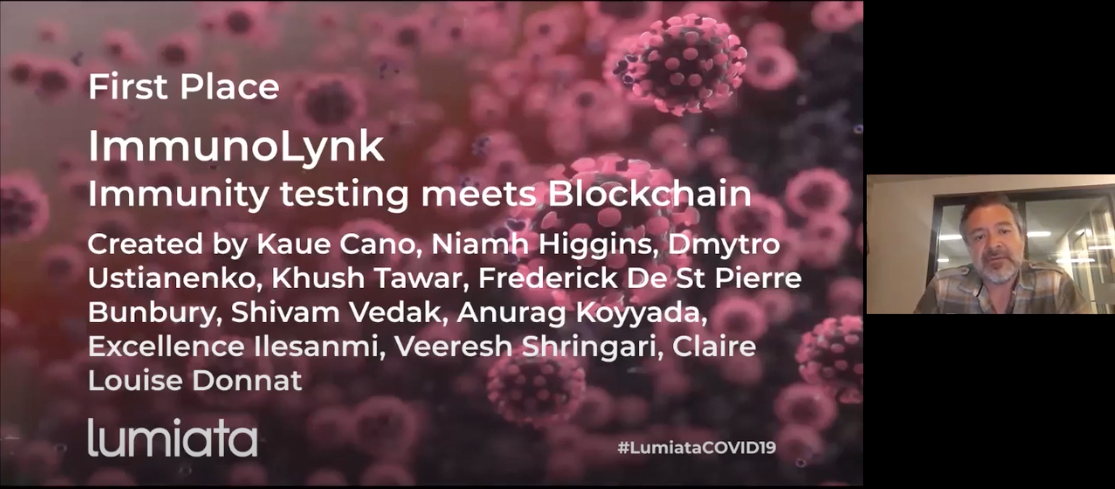
Miguel Alvarado, Lumiata’s CTO, at the award ceremony
The next month, after expanding our team and plugging some blockchain power-ups to the project, we managed to finish second at DAIA’s (and freaking Ben Goertzel’s) CoVIDathon.
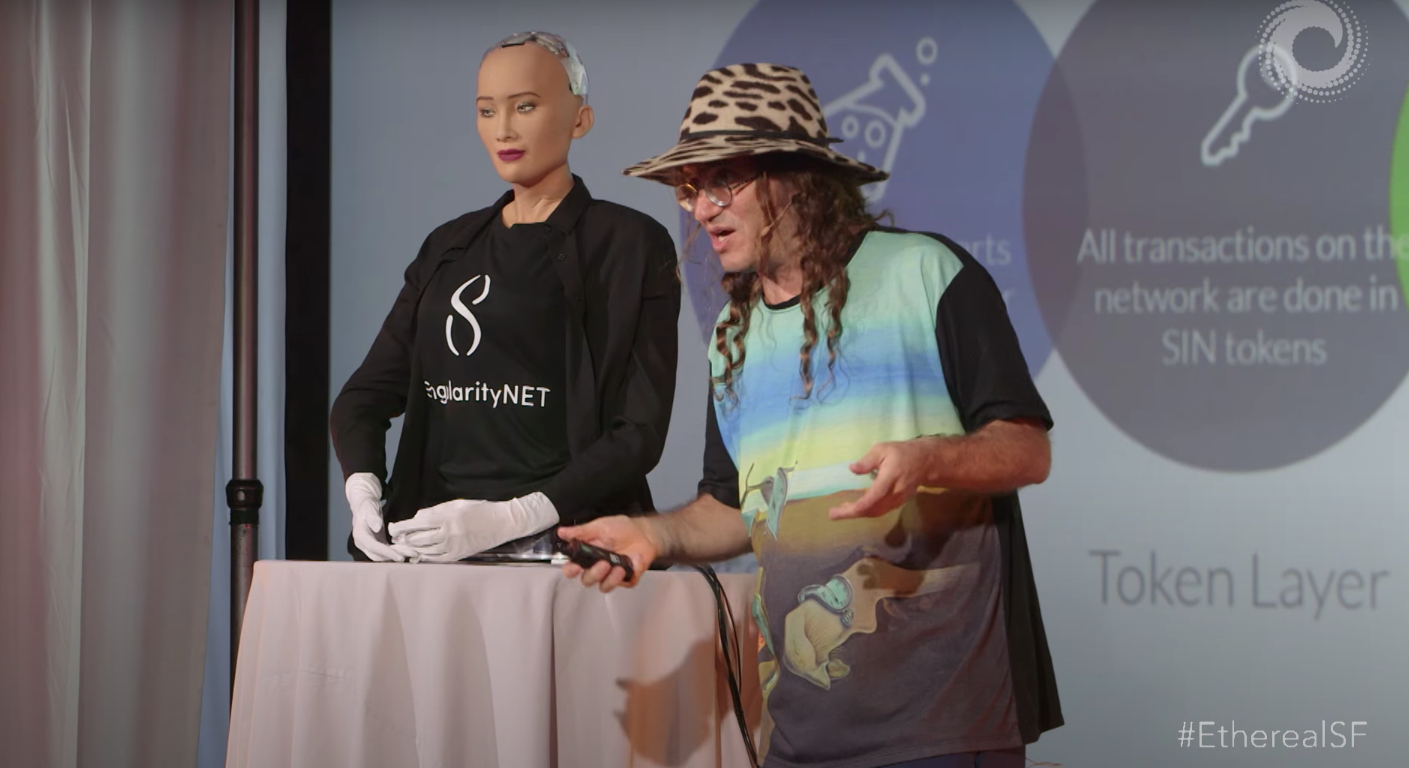
Ben Goertzel and Sophia, present AI singularity avatar and one time Will Smith date
What amazed me the most with this all-remote transformation was new technology debuting in mere months. Cryptochick’s Planet Wide SOS Hackathon voting ran through the Alchemy dapp with a new way of delegating voting power to judges, organizers, participants and donors - all running through the power of blockchain.
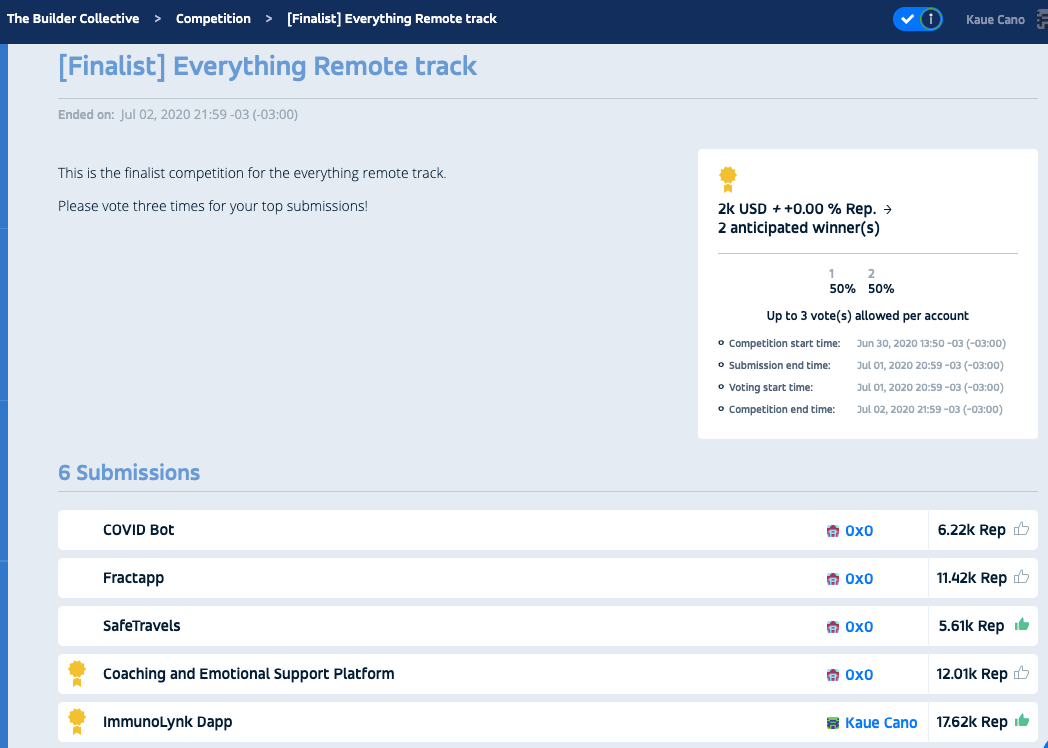
Alchemy DAO voting for Planet SOS’s Everything Remote Track
As you can see from the picture above, we managed to finish first once more. This time, Vitalik Buterin was one of the judges. Satoshi 2.0. Smart contracts pioneer. Biggest name in blockchain development ever. Llama enthusiast. Senpai.
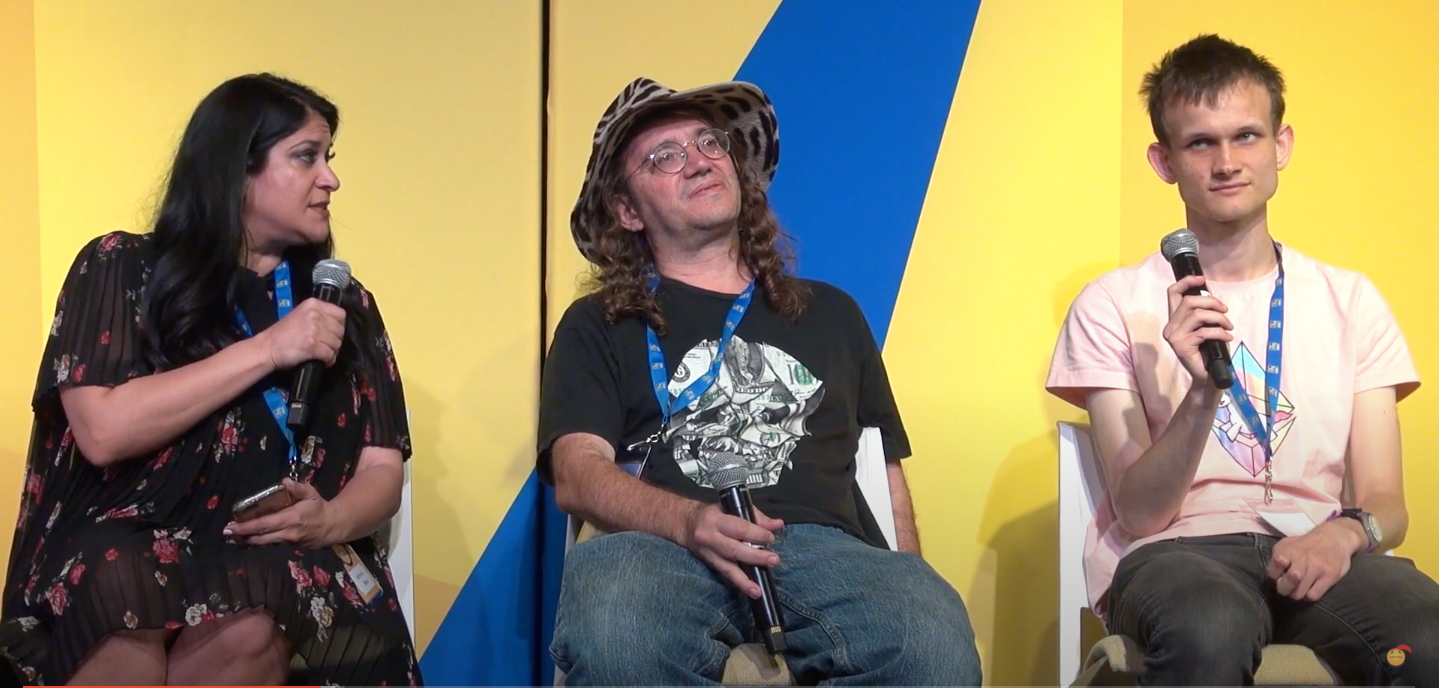
Vitalik and Ben @CryptoChicks, two sides of the blockchain-development coin
This was a game changer for me. Not in a hundred years would I imagine standing side-to-side (albeit in a virtual environment) with Ethereum’s inventor and even present a project to him. Being recognized by one of my top idols is what made me think “we’re onto something here and more people need to get into this” and basically write this story today.
So, without further ado, next up I’ll go over five tips I can give hackathon participants based both on my successes and failures throughout this brief but turbulent period.
#remote-working #life-hacking #competition #blockchain-development #hackathons #blockchain
